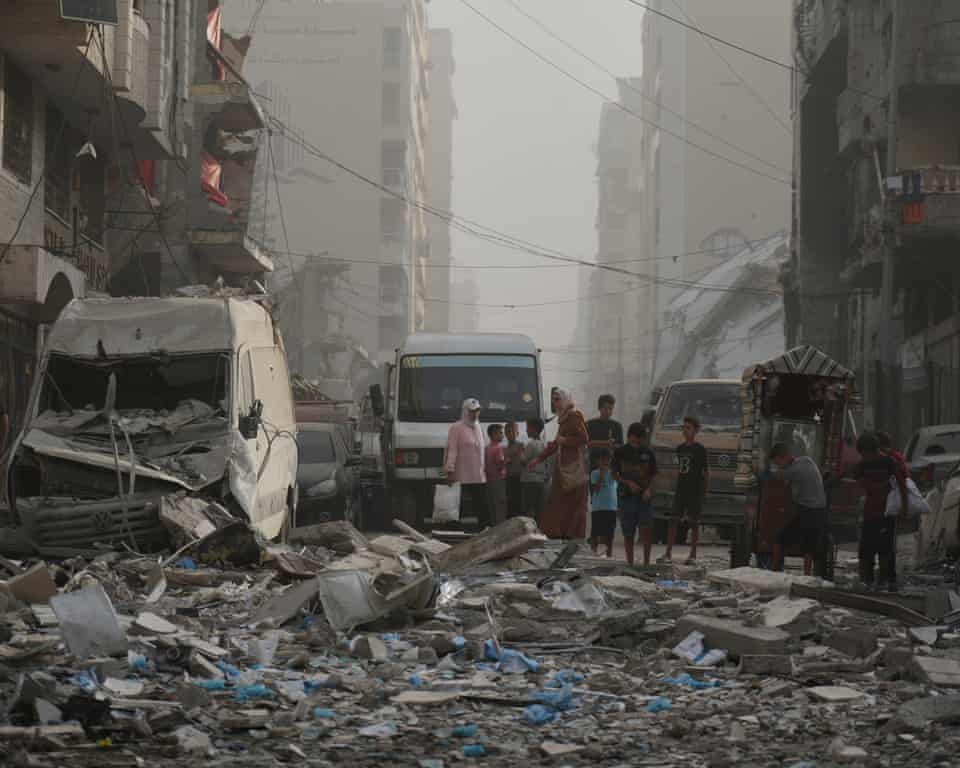Negotiators have arrived in Cairo ahead of talks scheduled for Monday, which are expected to focus on the release of hostages held by Hamas in Gaza and a broader resolution to the ongoing conflict. Despite diplomatic efforts, Israeli airstrikes continued over the weekend, with 63 Palestinians reported killed in the past 24 hours.
The Egyptian foreign ministry confirmed that discussions would centre on the first phase of US President Donald Trump’s proposed plan to end the war. This phase involves the release of the remaining 48 hostages held by Hamas in exchange for Palestinian prisoners currently detained in Israel.
US envoy Steve Witkoff is expected to participate in the negotiations, alongside Israeli representatives and a Palestinian delegation led by Khalil al-Hayya, deputy head of Hamas’s political bureau. Israeli government spokesperson Shosh Bedrosian stated that the talks would be “confined to a few days maximum”.
On Sunday evening, President Trump announced that negotiations were progressing swiftly and that the initial phase “should be completed this week”. He urged all parties to “MOVE FAST” in a post on social media.
According to Trump, the proposed hostage release and prisoner exchange would trigger an immediate cessation of hostilities in Gaza. Following Hamas’s partial acceptance of the plan on Friday, officials from the US, Israel, and Hamas have expressed cautious optimism that a ceasefire may be imminent.
US Secretary of State Marco Rubio described the Cairo talks as “the closest we’ve come to getting all the hostages released” during an interview with ABC. However, he cautioned that logistical challenges remained, particularly regarding the mechanics of the hostage release.
Rubio also highlighted long-term obstacles to implementing the agreement, notably the establishment of a technocratic governing body to replace Hamas in Gaza. He stressed that the immediate priority was securing the hostages’ release and ensuring Israeli forces withdrew to a mutually agreed line.
Under Trump’s plan, Hamas would release all hostages within 72 hours, relinquish control to a transnational authority led by the US president, and disarm. In return, Israel would begin a phased withdrawal from Gaza and release over 1,000 Palestinian prisoners. The agreement would also unlock humanitarian aid and reconstruction funds for Gaza, where parts of the territory are experiencing famine.
Read Also:
Israeli navy intercepts aid flotilla bound for Gaza
Ex-UK PM Blair to head Gaza transition if ceasefire holds
Israel says only Gaza city hospitals will be spared in new offensive
On Saturday night, Trump published a map outlining the proposed Israeli withdrawal line, ranging from 2km to 4km inside Gaza. He stated that a ceasefire would commence immediately if Hamas accepted the terms.
While the plan stipulates a full Israeli withdrawal to a buffer zone along Gaza’s edge, Prime Minister Benjamin Netanyahu has indicated that Israeli troops will remain in most of the territory regardless of any agreement.
Global support for a ceasefire has grown, with Western and Arab leaders urging both sides to reach a deal. German Chancellor Friedrich Merz spoke with Netanyahu on Sunday, endorsing Trump’s proposal as “the best chance for peace”.
Israeli officials have expressed hope that an end to the war could be announced within days. A senior Hamas official told Agence France-Presse that the group was “very keen to reach an agreement to end the war and immediately begin the prisoner exchange process in accordance with the field conditions”.
In an interview with CNN, Trump warned Hamas of “complete obliteration” should it fail to agree to the deal. He also claimed that Netanyahu supported ending the bombardment of Gaza.
Despite Trump’s call for restraint and military orders limiting operations to defence, Israeli strikes continued over the weekend. Eight people were killed in separate attacks on Gaza City, while four others were shot dead while seeking aid in the southern part of the strip.
“There’s no ceasefire in place at this point in time,” Bedrosian confirmed, although she noted that some bombings had ceased.
According to Gaza’s health ministry, at least 67,139 people have been killed and approximately 170,000 injured since Israel launched its military campaign in response to a Hamas-led attack that killed around 1,200 people and saw 251 others taken hostage.
The United Nations commission of inquiry, several human rights organisations, and the International Association of Genocide Scholars have concluded that Israel has committed genocide in Gaza. Israel denies the allegations, maintaining that its actions are in self-defence.



